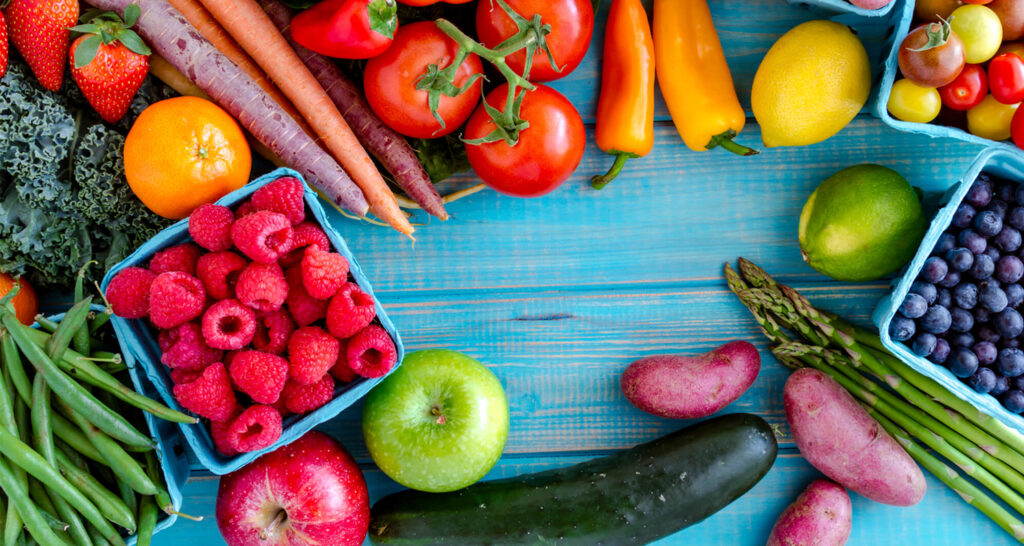Imagine being able to fill your cart with wholesome, nourishing foods without watching your budget crumble. Welcome to a world where savvy grocery shopping meets good nutrition.
Grocery Shopping Tips: Make the Most of Your Budget

When it comes to grocery shopping, a few smart strategies can significantly impact your budget. Here are some tips to help you shop wisely and find the best deals:
- Plan Your Meals: Start by planning your meals for the week. This will help you create a shopping list and avoid unnecessary purchases.
- Stick to the List: Once you have your list, stick to it. Impulse buying often leads to overspending.
- Coupon and Sales Savvy: Keep an eye on coupons and weekly sales in your local store. This can lead to significant savings.
- Buy in Bulk: For non-perishable items or those with a long shelf life, consider buying in bulk. It’s usually more cost-effective.
- Compare Prices: Don’t hesitate to compare prices between different brands and sizes. Generic or store brands are often cheaper and of similar quality.
- Fresh and Seasonal: Opt for fresh, seasonal produce. It’s not only healthier but usually less expensive.
- Freeze and Store: If you find a good deal on meat or other perishables, consider buying in quantity and freezing what you won’t use immediately.
- Shopping Timing: Shopping early in the morning or late in the evening may allow you to catch clearance sales.
- Join a Rewards Program: Many grocery stores offer loyalty programs with discounts and rewards.
- Avoid Convenience Items: Pre-cut fruits or vegetables, while convenient, are more expensive. Buying whole items and preparing them at home saves money.
By applying these grocery shopping tips, you can shop smartly, find the best deals, and make the most of your budget when buying groceries. It’s a simple yet effective way to keep your expenses in check while enjoying fresh and nutritious meals.
Meal Planning: Maximizing Nutritional Value and Savings

Meal planning is a crucial practice that offers several benefits, including minimizing food waste and reducing overspending. Here’s a brief overview:
- Avoid Food Waste: Meal planning helps you buy only what you need, reducing the likelihood of food going to waste. You can also use leftovers creatively in subsequent meals.
- Budget-Friendly: By knowing your weekly meals in advance, you can shop strategically, taking advantage of sales and buying in bulk for long-lasting staples.
- Nutrient-Rich Choices: Planning meals allows you to prioritize nutrition. You can ensure a balanced diet with fruits, vegetables, lean proteins, and whole grains.
- Time Efficiency: Meal planning saves time throughout the week since you’ve already decided what to cook, reducing the need for last-minute takeout.
- Healthier Eating: When you have nutritious meals planned, you’re less likely to reach for unhealthy options.
- Variety: Planning ahead encourages variety in your meals, preventing monotony.
Tips for Effective Meal Planning:
- Make a weekly meal schedule and shopping list.
- Incorporate seasonal produce for better prices and fresher ingredients.
- Cook in batches to have leftovers for lunch or dinner the next day.
- Utilize versatile ingredients that can be used in multiple dishes.
- Explore online resources and apps for recipe ideas and planning tools.
By embracing meal planning, you can enhance your diet, reduce food waste, and save money, all while simplifying your daily routine.
Couponing and Discounts for Healthy Food

Effective Couponing:
- Online Resources: Use websites and apps that aggregate coupons and discounts for groceries.
- Sign Up for Newsletters: Many brands offer exclusive coupons via email newsletters.
- Store Apps: Download store-specific apps for digital coupons.
- Stack Coupons: Combine manufacturer and store coupons for extra savings.
- Timing is Key: Shop when stores offer discounts or double coupon values.
Discount Strategies:
- Buy in Bulk: Purchase non-perishable healthy items in bulk when they’re on sale.
- Seasonal Produce: Buy fruits and vegetables in season for lower prices.
- Store Brands: Consider store-brand products that are often cheaper.
- Rewards Programs: Join loyalty programs for discounts and cashback offers.
- Discount Days: Take advantage of special discount days offered by some stores.
Healthy Food Choices:
- Plan Your Meals: Create a meal plan to ensure healthy choices and minimize impulse buys.
- Generic Medications: Opt for generic versions of over-the-counter medicines.
- Avoid Processed Foods: Limiting processed foods can lead to healthier and more cost-effective meals.
- Sales and Coupons for Fresh Produce: Look for deals on fresh fruits and vegetables.
- Discounted Protein: Find discounts on lean proteins like chicken and tofu.
By effectively using coupons and discount strategies, you can make healthier food choices without breaking the bank.
Affordable Superfoods: Nutrient-Packed and Budget-Friendly

Affordable superfoods are a smart choice for those seeking optimal nutrition without breaking the bank. These budget-friendly options offer great health benefits without the high costs:
- Oats: Packed with fiber and nutrients, oats are a versatile and inexpensive superfood. They’re ideal for a nutritious breakfast or as an ingredient in snacks.
- Legumes: Beans, lentils, and chickpeas are rich in protein, fiber, and essential vitamins. They’re affordable and can be used in various dishes.
- Bananas: This common fruit is a nutritional powerhouse. It’s rich in potassium, vitamin C, and dietary fiber, making it an excellent choice for both health and savings.
- Eggs: Eggs are one of the most cost-effective sources of protein and contain various essential nutrients. They’re perfect for a quick and healthy meal.
- Sweet Potatoes: Packed with vitamins and fiber, sweet potatoes are affordable and can be the basis for numerous dishes, from fries to casseroles.
- Cabbage: Cabbage is a low-cost vegetable loaded with vitamins, including vitamin C, and it’s great for making slaws and stir-fries.
- Brown Rice: A more nutritious alternative to white rice, brown rice is an excellent source of carbohydrates and fiber.
- Frozen Vegetables: While fresh produce is great, frozen vegetables are often more budget-friendly and maintain their nutritional value.
- Canned Tuna: Canned tuna provides an affordable source of protein and heart-healthy omega-3 fatty acids.
- Carrots: Carrots are economical and are rich in vitamin A and fiber.
Incorporating these affordable superfoods into your diet can help you maintain a balanced, nutritious eating plan while being mindful of your budget. These options prove that eating healthily doesn’t have to be expensive, and they’re readily available in most grocery stores.
Cooking on a Budget: Savory and Wallet-Friendly Recipes

Cooking on a budget doesn’t mean compromising on flavor or nutrition. Here’s how you can create tasty, wholesome meals without overspending:
- Meal Planning: Plan your meals for the week. This prevents impulsive, costly purchases and minimizes food waste.
- Buy in Bulk: Purchase pantry staples in bulk when they’re on sale. Items like rice, pasta, and canned goods have a long shelf life.
- Seasonal Produce: Focus on fruits and vegetables in season. They’re often fresher and more affordable.
- Beans and Legumes: Beans and lentils are protein-packed and cost-effective. Use them in soups, stews, and salads.
- Versatile Eggs: Eggs are versatile and an affordable source of protein. Scramble, fry, or poach them for various dishes.
- Frozen Veggies: Opt for frozen vegetables, which retain their nutrients and are often cheaper than fresh ones.
- Affordable Proteins: Chicken thighs, ground turkey, and canned fish are more budget-friendly protein sources.
- DIY Snacks: Make your snacks like popcorn, granola, and energy bars. They’re healthier and cheaper than store-bought options.
- One-Pot Meals: Prepare dishes like stir-fries, casseroles, or chili, which are easy to make and require minimal ingredients.
- Batch Cooking: Cook large portions and freeze leftovers for later. This saves time and money in the long run.
- Spice It Up: Use herbs and spices to add flavor to your dishes. They’re cost-effective and can transform simple meals.
Cooking on a budget can be an enjoyable culinary journey. These budget-friendly recipes prove that you can eat healthily and deliciously without straining your wallet.
Plant-Based Nutrition: Affordable and Healthy Choices

Plant-based nutrition offers a cost-effective way to enjoy a nutritious diet. Here’s why and some meal ideas:
Cost-Effectiveness:
- Affordable Proteins: Plant-based proteins like beans, lentils, and tofu are generally cheaper than animal sources.
- In-Season Produce: Seasonal fruits and vegetables are budget-friendly and fresher.
- Bulk Buying: Purchasing grains, legumes, and nuts in bulk reduces costs in the long run.
- Reduced Health Expenses: A plant-based diet may lower the risk of chronic diseases, leading to potential long-term health cost savings.
Meal Ideas:
- Chickpea Curry: A flavorful blend of chickpeas, tomatoes, and spices served with rice.
- Veggie Stir-Fry: Combine a variety of colorful vegetables with tofu or tempeh and a tasty stir-fry sauce.
- Quinoa Salad: Quinoa mixed with roasted vegetables, nuts, and a vinaigrette dressing.
- Lentil Soup: Hearty and economical, this soup is packed with protein and veggies.
- Black Bean Tacos: Seasoned black beans, lettuce, salsa, and avocado in soft tortillas.
- Oatmeal with Fruit: Nutrient-rich oats topped with fresh or dried fruit and nuts.
- Pasta Primavera: Whole wheat pasta with sautéed seasonal vegetables and a light sauce.
- Hummus and Veggie Wrap: Spread hummus on a whole-wheat tortilla, add sliced veggies, and roll it up.
Plant-based nutrition can be both wallet-friendly and health-promoting. These meal ideas are just a glimpse of the delicious and cost-effective options available on a plant-based diet.
DIY Kitchen Hacks for Saving Money and Reducing Food Waste
Save Money:
- Buy in Bulk: Purchase non-perishable items in bulk to benefit from lower unit prices.
- Meal Planning: Plan meals to minimize food and money waste.
- Cook in Batches: Prepare larger quantities and freeze meals for later use.
- Grow Herbs: Cultivate your herbs for fresh, cost-effective seasonings.
- Homemade Snacks: Create snacks like granola bars and trail mix at home to cut down on store-bought expenses.
Reduce Food Waste:
- Proper Storage: Use airtight containers and store food appropriately to prolong freshness.
- Repurpose Scraps: Reuse vegetable scraps to make broths or stocks.
- Composting: Turn food scraps into nutrient-rich compost for your garden.
- Regrow Veggies: Some vegetables can be regrown from kitchen scraps, reducing waste.
- Leftovers Reinvented: Transform last night’s dinner into a new meal.
These DIY kitchen hacks can save you money while promoting eco-friendly practices by minimizing food waste.
